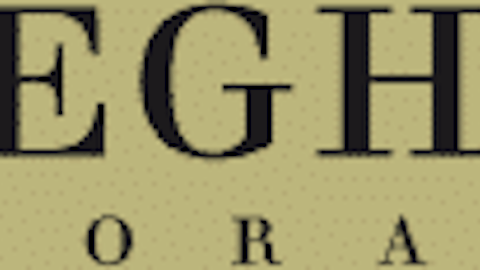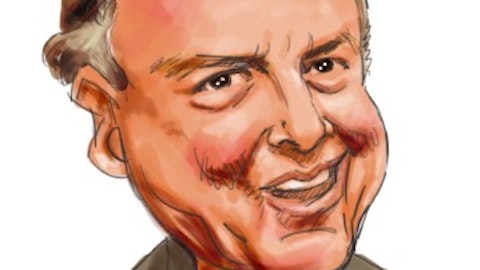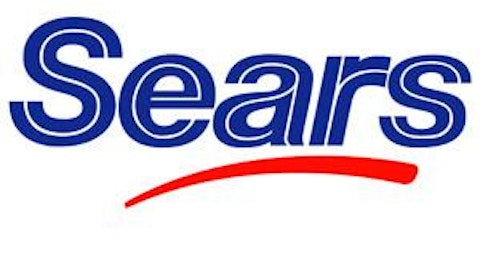Back in 2005, just before Gillette was acquired by The Procter & Gamble Company (NYSE:PG), Warren Buffett said that he just loves to wake up in the morning knowing there were millions of men out there using Gillette’s disposable shaving razors, each and every day. Needless to say, Berkshire Hathaway Inc. (NYSE:BRK.A) owned $600 million worth of Gillette’s shares prior to the acquisition. Buffett has made a bundle for Berkshire’s shareholders. But the important point to take away from this isn’t the successful buyout of Gillette. It’s the traits that make a business – a really great business. I believe that the market for athletic shoes resemble many of the business characteristics that Buffett and Berkshire are looking for.
The winning traits of a wonderful business
A wonderful business usually evolves around a simple consumer concept that’s usually relatively insulated from the ups and downs of the economy. In Gillette’s case, men always need to shave, in recessionary times, as well as in times of prosperity. That’s why it’s a recurring business, by definition. Similarly, the athletic segment thrives on youth sports. The great thing about young people is that they always need new shoes; they either grow and their feet become too small, or the shoes are worn out from use. After all, shoes are a highly disposable item. In either case, they go out and buy shoes regardless of the state of the economy.
Another point that comes to mind is Gillette’s strong brand name. Their slogan “The best a man can get” has established an extremely strong brand name for the company. Similarly, shoes are a brand-dominated industry. Consumers want the latest version of whatever comes out, be it a new model named after a basketball superstar or a tennis champion.
Berkshire Hathaway Inc. (NYSE:BRK.A) has mastered the art of collecting such consumer brands. Coca-Cola, for example, is just that: a sugary carbonated beverage with more fans than Madonna. But the special secret is that every Coke fan must go back to the store and buy some more Coke every time he runs out of it. Coke, in that sense, is the ultimate recurring business. Recently, Berkshire has made another big investment in another consumer branded product. It bought H.J Heinz company, together with 3G Capital. That’s another fantastic example of a recurring business.
Who makes money from selling sports shoes?
You’ve got branded names like NIKE, Inc. (NYSE:NKE) or Adidas that sell sports apparel. But the trouble with them is that consumers might change their preferences overnight. I think the best place to invest is alongside athletic retail stores, the kind that sell sports shoes of all forms and brands. They’re the ones that always make money, no matter what happens to the tastes of consumers. Below are my favorite two athletic apparel retailers.
- Foot Locker, Inc. (NYSE:FL) operates over 3,000 stores in over 23 countries with the bulk of its business coming from the US and Europe being the second largest contributor. The company is very focused on increasing sales. Revenue growth is almost entirely driven by growth in same-store sales, which clocked in at 9.4% and 9.8% for 2012 and 2011 respectively. Keep in mind that this is the same retail environment where many other consumer apparel companies are seeing relatively flat growth, and those exposed to Europe are using that as an excuse every chance they get. Foot Locker is trading at 7.2x its trailing EBITDA and sits on $1.1 billion in cash and equivalents and only $0.1 billion in outstanding debt. Foot Locker generated free cash flow of over $250 million in 2012 after funding over $160 million for capital expenditures related to store openings and remodels. That’s a very strong cash generating ability. Aside from its 2.4% dividend yield, the company also has an outstanding $600 million share repurchase program in place.
- Finish Line Inc (NASDAQ:FINL) is one of the nation’s largest mall-based specialty retailers, focusing on athletic shoes, apparel and accessories. The company operates 651 brick and mortar stores under the Finish Line brand and 27 specialty running stores. Recently, Finish Line was on the news after Macy’s, Inc. (NYSE:M) signed a deal with the company to allow 450 FNL “store within a store” concepts nationwide. Management guided that this partnership would result in an extra $250 million. Finish Line has about $225 million in cash on the balance sheet and no debt outstanding, Lastly, the company reported 12.3% same-store sales growth during its second quarter. And that’s on top of 11% growth in fiscal year 2011. At just 13 times forward earnings, compared to an industry median of 16 times, Finish Line is good value.
My Foolish takeaway
The article How to Make Money From Running Shoes originally appeared on Fool.com and is written by Shmulik Karpf.
Shmulik Karpf has no position in any stocks mentioned. The Motley Fool recommends Berkshire Hathaway. The Motley Fool owns shares of Berkshire Hathaway. Shmulik is a member of The Motley Fool Blog Network — entries represent the personal opinion of the blogger and are not formally edited.
Copyright © 1995 – 2013 The Motley Fool, LLC. All rights reserved. The Motley Fool has a disclosure policy.






